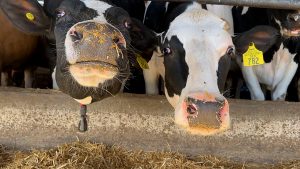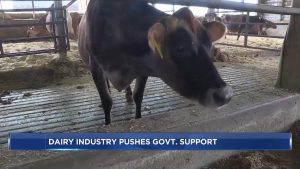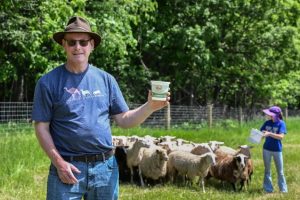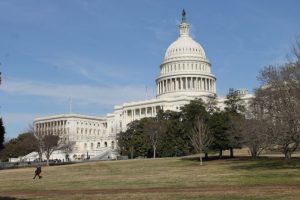
Feed and fertilizer are more than twice the price they were a year ago. They are nearly triple that of what they were prior to the pandemic.
“A Holstein cow can eat 80 to 100 pounds of feed a day. So times 2000, that’s a lot of pounds of feed,” said Porter.
Much like other North Country Farmers, Porter has felt the effects of the rising costs.
“As the price of trucking, diesel, labor, inputs goes up to our vendors. They can change their prices, but we can’t change ours,” said Porter.
Market experts attribute the rise in fertilizer costs are due to the conflict in Ukraine. Russia is the world’s largest supplier of the product, a concern for Porter as prices continue to skyrocket.
“Overall it is just not sustainable for the prices to continue going the direction they are in. Family farms will really be in trouble,” said Porter.
A concern that Porter says can been seen throughout the agricultural community.
“The net spreads quite broadly through the local economy. We purchase from a lot of vendors. So to have a downturn in the dairy economy is a downturn in the general economy for the North Country,” said Porter.
Agriculture is a major contributor to the North Country as it accounts for nearly $2 billion to the region’s economy.























